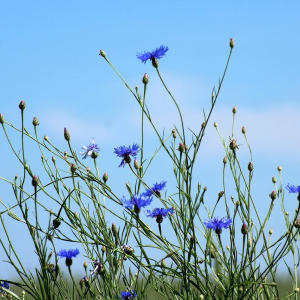
This paper surveys farmers and environmental scientists in Germany and Austria on their attitudes towards biodiversity-friendly management practices for agriculture. It finds significant differences between the attitudes of these different stakeholder groups. The motivation for the study was to examine why farmers rarely use certain biodiversity-oriented management practices despite growing scientific evidence for their benefits.
The paper concludes that:
- While both farmers and scientists view biodiversity and agri-environmental schemes (AES, i.e. financial support provided to farmers by the European Union) as broadly beneficial for agricultural productivity, scientists place more importance on ecosystem services than do farmers.
- Farmers tend to place the most importance on those ecosystem services that are traditionally related to agricultural production, such as soil quality, suggesting that scientific knowledge of the broader benefits of biodiversity-friendly farming methods are not being communicated well to farmers.
- Communication and funding strategies should take into account the varying attitudes of farmers of different education levels, gender, etc. For example, farmers with higher education placed more importance on biodiversity than did farmers with school education only.
- Scientists viewed AES and conservation measures in “very positive, almost idealistic” terms. There are large differences in which measures farmers and scientists view as more effective - for example, farmers rate vegetation strips and shrubs as neutral whereas scientists see them as more important.
The authors call for more channels to support collaboration with and between policymakers, scientists and farmers.
Abstract
Biodiversity-friendly management is pivotal for sustainable agriculture, but rarely put into practice by farmers despite mounting evidence of the social, environmental, and economic benefits of such practices. We investigated the reasons for this implementation challenge by conducting a transdisciplinary survey to identify differences between perceptions of 208 farmers and 98 environmental scientists from Germany and Austria toward biodiversity, ecosystem services and the decision-making processes shaping agricultural landscapes. Perceptions of biodiversity, agri-environment schemes and conservation measures differed significantly between scientists and farmers. While scientists valued scientific information as more important for agricultural decision-making, farmers valued government and agricultural-sector information sources. We found more “biodiversity-positive” perceptions in female-, organic-, and more highly-educated-farmers, highlighting opportunities for more targeted promotion of conservation schemes. Survey respondents were generally younger than the population averages for both farmers and scientists, and our results therefore provide important insights for the future of biodiversity-friendly farming and related conservation science. Our findings demonstrate the urgent need for enhanced communication platforms and cooperation between scientists and key agricultural stakeholders to establish open dialogues between agricultural research, practice, and policy.
Reference
Maas, B., Fabian, Y., Kross, S.M. and Richter, A., 2021. Divergent farmer and scientist perceptions of agricultural biodiversity, ecosystem services and decision-making. Biological Conservation, 256, p.109065.
Read the full paper here. See also the Table explainer What is the land sparing-sharing continuum?







Post a new comment »